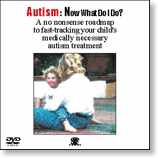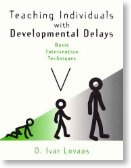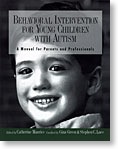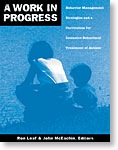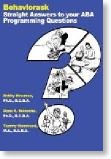bcba
Speech and Language Pathologists are the first responders for autism
27/07/12 11:17 Filed in: autism | Asperger's Syndrome

SLPs are often the first professionals to see a child with autism because the child is not developing language in a typically developing fashion. SLPs often recognize autism immediately due to the symptoms of the disorder that include echolalia, delayed echolalia, lack of joint attention and general lack of communication. Due to their expertise, SLPs can be crucially important in getting parents to act quickly on early intervention. However, SLPs frequently find themselves in a quandary: they know something is amiss but they are not diagnosticians. Unless they are credentialed in diagnosing childhood disorders, they are not allowed to render a diagnosis of autism even when red lights are flashing.
I have seen this situation all too often. It’s so common that after the diagnosis, parents actually complain about the fact that no one – including the SLP who first worked with their child – ever told them that their child may be afflicted with autism. I’ve heard many parents say, "if I could only get that lost year back."
I would like to strongly encourage SLPs to let the parents know if there are greater concerns about the child's language development and suggest that the child may benefit from an intensive treatment program. If the SLP is allowed to use the "autism" word, they should! If that’s impermissible, then they should encourage the parent to visit a local developmental pediatrician who is known to diagnose autism quickly, and accurately. In order to find that pediatrician, I would contact the local Families for Early Autism Treatment (FEAT) or ABA parent group in the area, and ask for the name of the best diagnostician in town.
It is one thing to have this information and quite another to communicate the information in an effective manner. To that end, I would suggest the following words:
"I am very concerned about Johnny, and Dr. Jones is a pediatrician who will very quickly be able to tell you if you need to have your child in an intensive treatment program for this language delay. Dr. Jones will have excellent advice about what we need to do to help Johnny. Obviously I can work on your child's language and communication skills, but I want to make sure that we give your child the best start in life and I want to make sure that he reaches his full potential. The way to do this is through an assessment by Dr. Jones and possibly an intensive treatment program.”
I would also source the name of the best local psychologist who can diagnose the child. The local FEAT or ABA parent group should have the name of this professional. In addition, a good SLP should find out who in the area is a Board Certified Behavior Analyst (BCBA) who provides Intensive Behavioral Treatment (IBT) for autism. Armed with this knowledge, the SLP’s next step is to ask the parent group how parents in the area are funding the treatment. Depending upon jurisdiction, there may be laws protecting the child’s rights to treatment. The local FEAT type group will have this information.
Here’s the list of the steps an SLP can take when he or she is working with a child they suspect may have undiagnosed autism:
1) Find the professionals in your area who a) can provide a quick and accurate diagnosis e.g., pediatricians & psychologists, and b) are excellent practitioners in intensive behavioral treatment (e.g. BCBA)
2) Parent Group: a) find the parent group in your area that supports ABA (FEAT or FEAT-like organizations), and b) find out where and when they meet.
3) Sleuth out the funding agencies or insurance plans that pay for the treatment and find out how parents can best access these funds.
4) Create a New Parent Packet for information to give to these parents (or use the one that the local FEAT group provides)
Here are some tips to think about when an SLP is delivering the message:
- Stay on topic
- Don’t let immigrant status, poverty or lack of resources get in the way of helping these families access behavioral treatment programs.
If these folks have limited financial resources and are on a services wait list for several months, I would strongly recommend that they contact the local ABA parent group, which is free. There they will meet other parents who may help them find a way to get an earlier diagnosis.
- Ignore SLP colleagues who claim that everyone needs to take their own journey to come to the realization that their child has autism.
In short, you as an SLP have the power – and 1st responder insight – to speed up the diagnostic process considerably. Use your power for good!
When Generic Isn't Good Enough
07/10/11 11:48 Filed in: autism | Asperger's Syndrome
Surgeons are trained to operate, dentists are trained to drill and fill, why does the job description of classroom aides for children with autism say only that, “ability to lift” is required? Surely lifting is a sign of failure when it comes to autism -- not success -- since by the time a child, or adult with autism needs to be man-handled, the system has truly failed that person. Read more...





